1. Overview
Pengiran Muhammad Yusuf bin Pengiran Haji Abdul Rahim, known by his pen name Yura Halim, was a distinguished Bruneian civil servant, diplomat, educator, and poet. Born on May 2, 1923, he played a pivotal role in Brunei's governance and cultural development. He served as the nation's State Secretary from 1964 to 1967 and subsequently as the third Chief Minister (Menteri Besar) from 1968 to 1972. His diplomatic career included significant appointments as High Commissioner to Malaysia from 1995 to 2001 and Ambassador to Japan from 2001 to 2002. Additionally, he was a member of the Legislative Council of Brunei from 2011 until his passing in 2016.
Pengiran Muhammad Yusuf was a prominent figure in the Brunei Malay Teachers Association and one of the "Three M's" or "Three Musketeers," alongside Marsal Maun and Pengiran Muhammad Ali, who were instrumental in opposing British colonial influence in Brunei during the early 1950s. A survivor of the atomic bombing of Hiroshima (a `hibakusha`), he was the first Bruneian to receive an honorary doctorate from Hiroshima University. His lasting cultural contribution includes writing the lyrics for Brunei's national anthem, "Allah Peliharakan Sultan".
2. Early life and education
Pengiran Muhammad Yusuf was born in Kampong Kandang, Tutong District, Brunei, on May 2, 1923. He received his early education at a Malay school in Tutong town, specifically the Bukit Bendera Malay School. In 1940, he enrolled at the Sultan Idris Training College (SITC) in British Malaya, but his studies were cut short by the Japanese invasion in late 1941.
He returned to Brunei in December 1942 and attended Japanese language classes in Brunei Town and later in Kuching. Towards the end of 1943, he was selected, along with other students from the Borneo territories, to study in Japan as part of the Nanpō Tokubetsu Ryūgaksei program. He first undertook a language course at the Kokusai Gakuyukai International Institute in Tokyo. In April 1945, he entered Hiroshima University of Literature and Science (now part of Hiroshima University) to specialize in language and education.
On August 6, 1945, aged 22, he was in the university compound (specifically, the piano room of the Hiroshima Higher Normal School) approximately 0.9 mile (1.5 km) from the hypocenter when the atomic bomb was dropped on Hiroshima. He was taking a mathematics class with Abdul Razak Abdul Hamid from Malaya and Professor Kiyoshi Toda. The wooden two-story building was completely destroyed, but the three survived, protected by a desk and a piano. He later suffered from radiation poisoning. Pengiran Muhammad Yusuf was the only Bruneian among the nine Southeast Asian students who survived the atomic bombing in Hiroshima. After the bombing, he helped rescue other Japanese survivors.
He returned to Brunei in March 1946 and continued to be involved in the nation's post-war political developments. His early influences, along with other Malay-educated figures like Salleh Masri and Jamil Al-Sufri, stemmed from their training at institutions such as the SITC, placing them at the forefront of agitation in Brunei following the Japanese occupation.
3. Early career and political activities
Pengiran Muhammad Yusuf began his career as an assistant teacher at Bukit Bendera Malay School in Tutong on January 1, 1939. He was later elected vice president of the Barisan Pemuda (BARIP) when it was formed on April 12, 1946. BARIP aimed to achieve Brunei's independence and promote the social and economic advancement of the Malay community. While influenced by Indonesian nationalism, the group did not prioritize immediate independence for Brunei. Instead, BARIP focused on uniting young Bruneians to protect local rights against immigrants and advocated for the restoration of the British Residency to safeguard Malay interests, which led to the return of civil government in July 1946.
He played a key role in bringing the issue of a protest arch to the attention of Sultan Ahmad Tajuddin. When the British Resident ordered the protest slogan to be changed, Pengiran Muhammad Yusuf led BARIP in refusing to comply, threatening to dismantle the arch. Sultan Ahmad Tajuddin intervened, overruled the British Resident's order, and sided with BARIP, as he shared concerns about rising Chinese influence in Brunei.
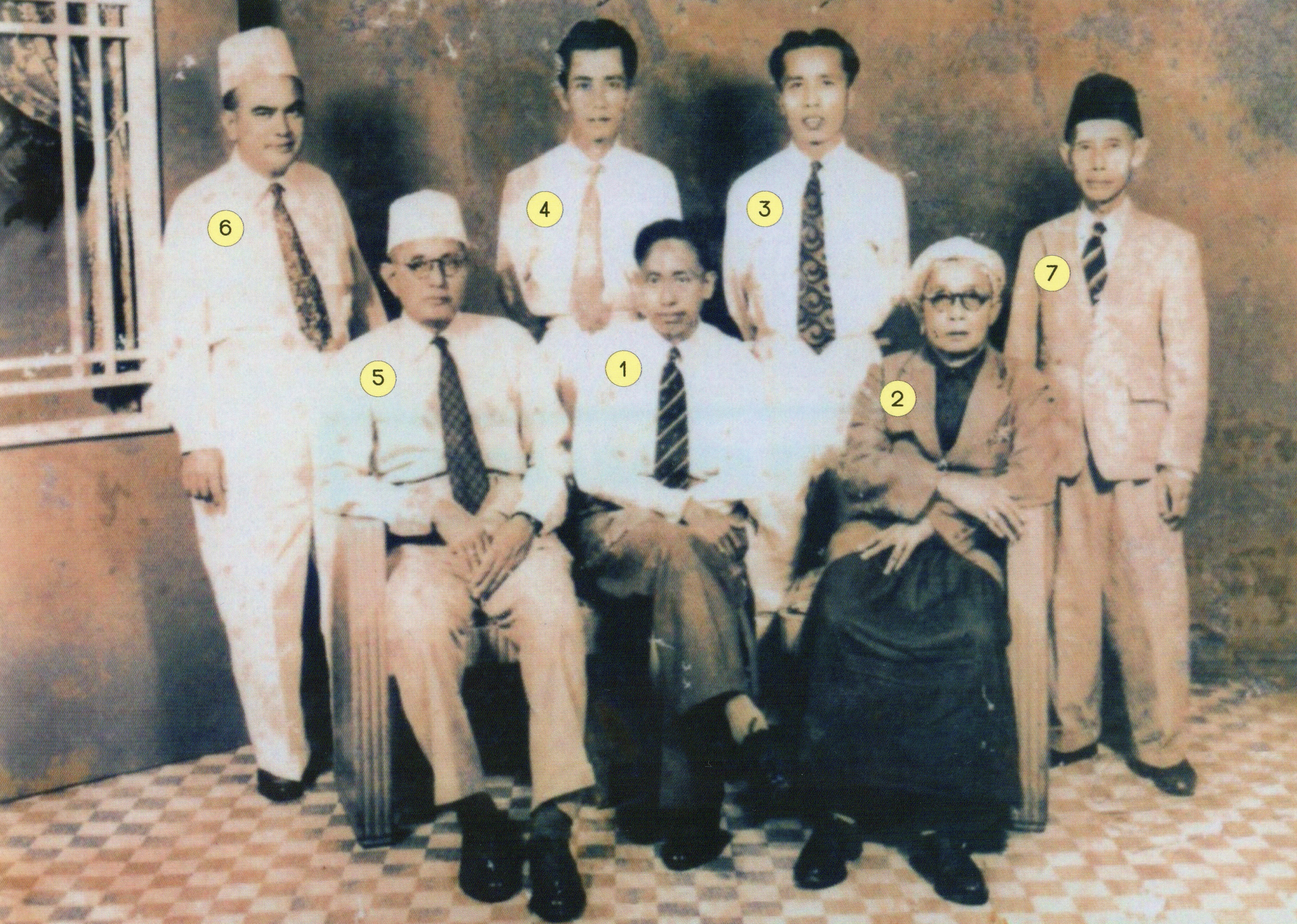
In 1947, Pengiran Muhammad Yusuf wrote the lyrics for "Allah Peliharakan Sultan" for BARIP, which would later be adopted as Brunei's national anthem. Later that year, as BARIP's deputy president, he was sent back to Malaya to resume his teacher training, which had been interrupted by the war. Upon his return in 1950, he was posted to Temburong District until 1954. His transfer, along with those of other leaders, contributed to BARIP's weakening and eventual decline.
Pengiran Muhammad Yusuf believed that the Sultan, despite the British Resident's advice, wanted the process of gauging public opinion on constitutional proposals to be a Bruneian matter. Consequently, he was appointed secretary to the Tujuh SerangkaiSeven PillarsMalay, a constitutional advisory committee, in 1953. The public's response to Sultan Omar Ali Saifuddien III's proposal was overwhelming, with young educated Bruneians, especially teachers, engaging in discussions about democracy and independence. By late 1953, the committee had completed its tour of Brunei, and in early 1954, it was tasked with studying Malaya's constitutions and administrative procedures. As secretary, Pengiran Muhammad Yusuf compiled a 50-page report from the visit to the four districts, which was presented to Sultan Omar Ali Saifuddien III in 1954.
4. Public service career
Pengiran Muhammad Yusuf's public service career spanned several decades, during which he held various key positions within the Bruneian government and diplomatic service, contributing significantly to the nation's development and international relations.
4.1. State information officer
After transferring to the Information Department in 1954, Pengiran Muhammad Yusuf was sent to South Devon Technical College in Torquay, United Kingdom, to study public and social administration, where he remained until 1957. During this time, in December 1956, he was appointed to a committee investigating housing allocations for government officers. Upon his return, he rejoined the Information Department and was later elected as the country's first information officer on January 1, 1957. Later that year, he was appointed as an unofficial member of the State Council, a role he held until the enactment of the new constitution. That same year, he accompanied the Sultan to London for key constitutional discussions with the Colonial Office. During these discussions, he strongly supported the Sultan's call for appointing a chief minister, state secretary, and state financial officer to align with the constitution's implementation, arguing that the change had been delayed since 1953 and reflected the people's wishes.
In February 1958, Pengiran Muhammad Yusuf, alongside Pengiran Ali and Marsal, was appointed to review the draft Agreement between Brunei and the United Kingdom and propose a new version after the State Council insisted on discussing it without Anthony Abell, the British Resident, present. Later, in May 1958, as the state information officer, Pengiran Muhammad Yusuf was identified by Abell as one of three key figures, alongside Pengiran Ali and Marsal, who were vocal in the State Council. E. R. Bevington noted that they often acted as spokesmen for the Sultan and played a significant role in advocating for amendments to both the constitution enactment and the draft agreement.
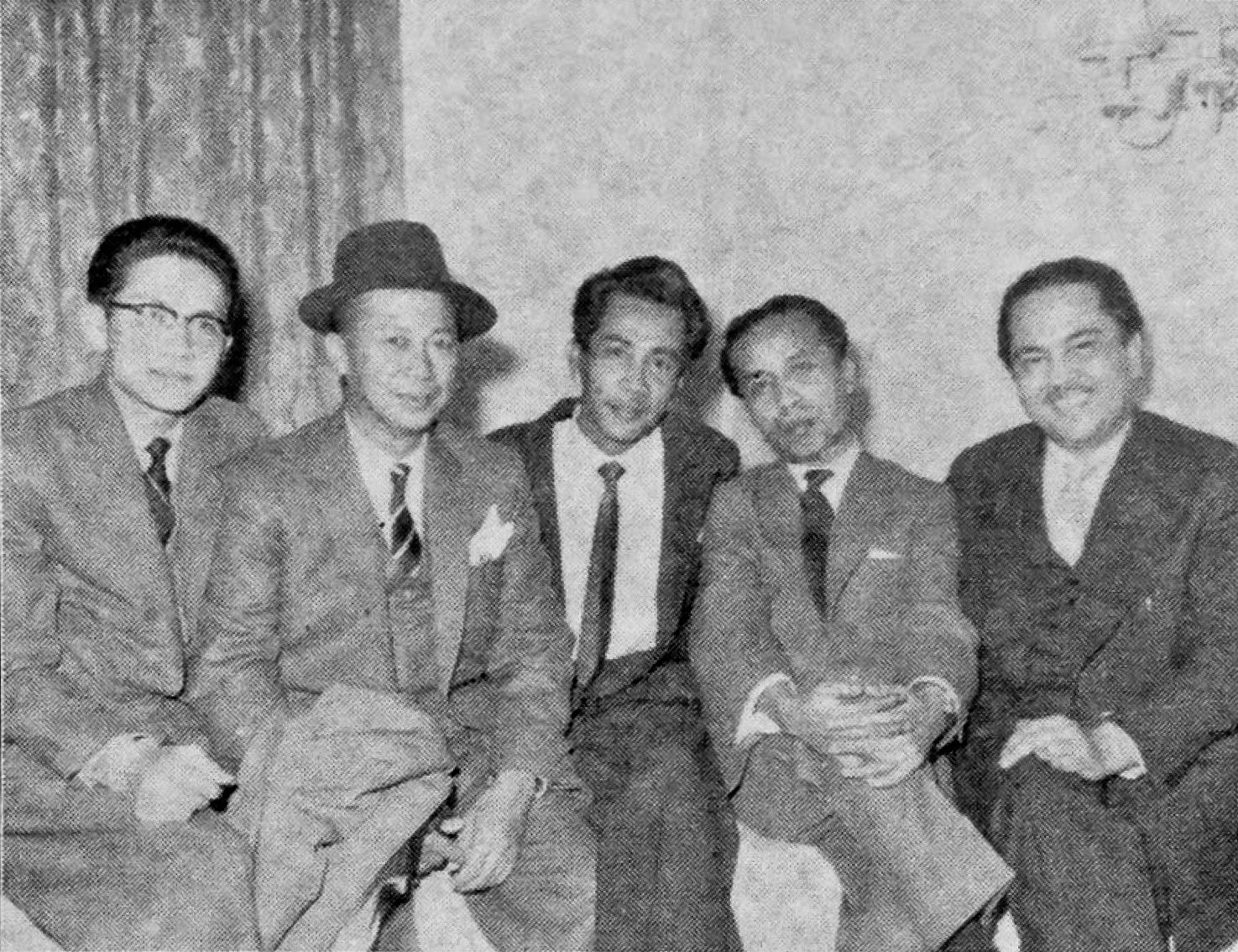
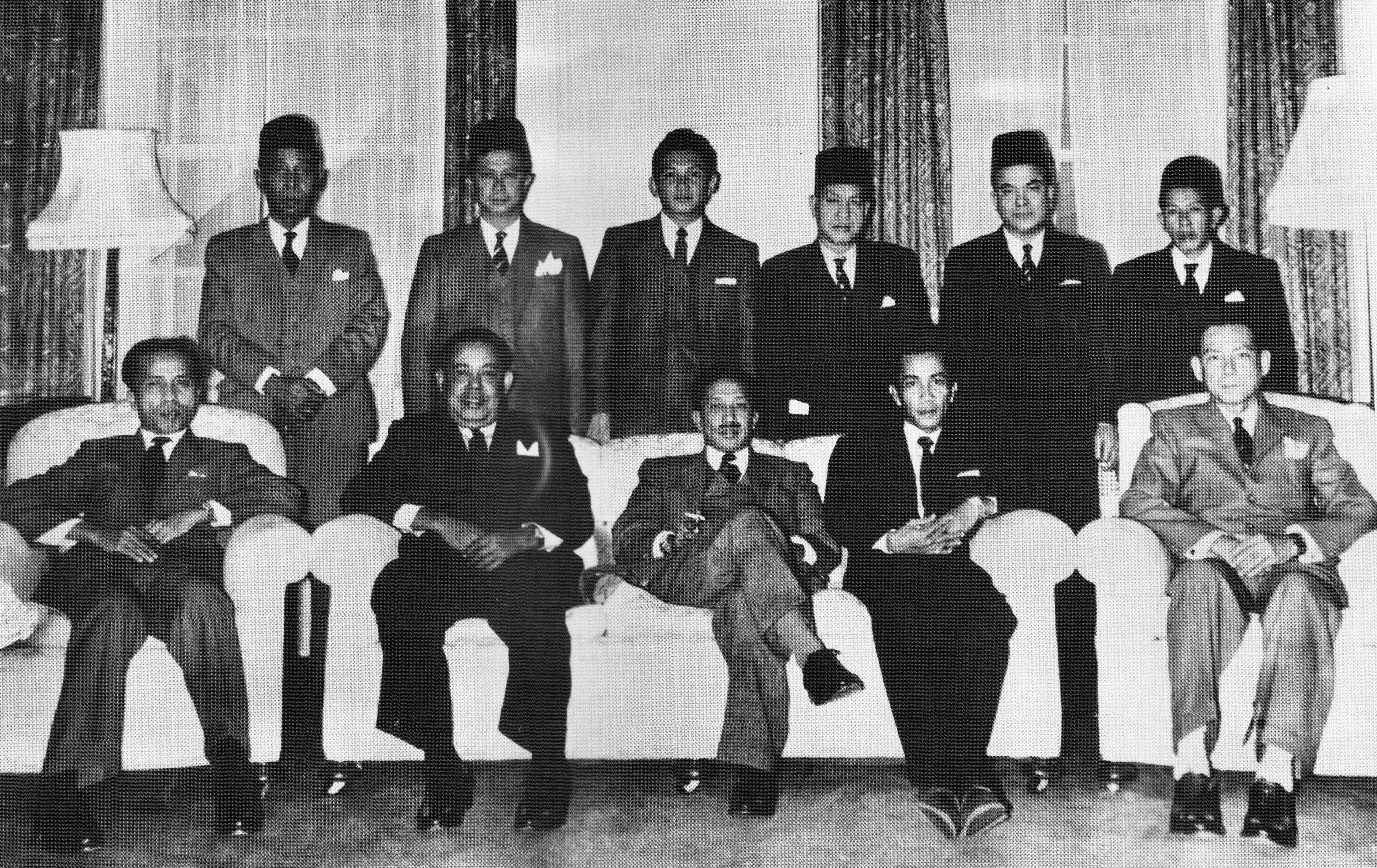
Pengiran Muhammad Yusuf was a member of Brunei's delegation to the 1959 constitutional negotiations in London, which included all Malay State Council members. Advised by two lawyers, the delegation discussed key issues such as the transfer of the British Resident's powers, nationality, Legislative Council qualifications, defence, and the high commissioner's reserve powers. On March 23, at the London Conference, he participated in six plenary sessions chaired by the state secretary. He was involved in discussions, alongside Brunei's legal advisers, on key constitutional matters, including Brunei's administrative separation from Sarawak.
In October 1959, Pengiran Muhammad Yusuf represented Brunei at a youth conference in Japan, where a key decision was made to advocate for the use of atomic energy for global peace and prosperity, not for destruction. He emphasized the importance of youth worldwide learning science and adapting to the atomic age, urging them to prepare not only as national leaders but also as global leaders who champion peace and prosperity. The conference, attended by representatives from 25 countries, was officially opened by Japan's education minister. Later, he witnessed the granting and signing of Brunei's constitution at the Lapau on September 29, 1959. Following the signing, he was appointed as a member of both the Legislative Council and Executive Council.
Pengiran Muhammad Yusuf was confirmed as the state information officer in December 1960 after the Legislative Council's unofficial members walked out in protest of their ideas being rejected, following growing hostilities between the locals and the Malayan contingent over the perceived influence of Malayan officers. In July 1961, he was promoted to deputy state secretary, succeeding Marsal. The high commissioner noted that his appointment, along with Marsal's, would have previously been met with concern due to their nationalist leanings and close ties with the Partai Rakyat Brunei (PRB). Pengiran Muhammad Yusuf, alongside Marsal, was praised for addressing a significant backlog of administrative tasks in Brunei, clearing around 600 files in the State Secretary's Office within four months of their appointments. His promotion in August 1961, which included roles as deputy state secretary and director of broadcasting and information, reinforced his alliance with the Sultan and marked a shift towards Bruneian officers in senior government positions, reducing reliance on Malayan officials.
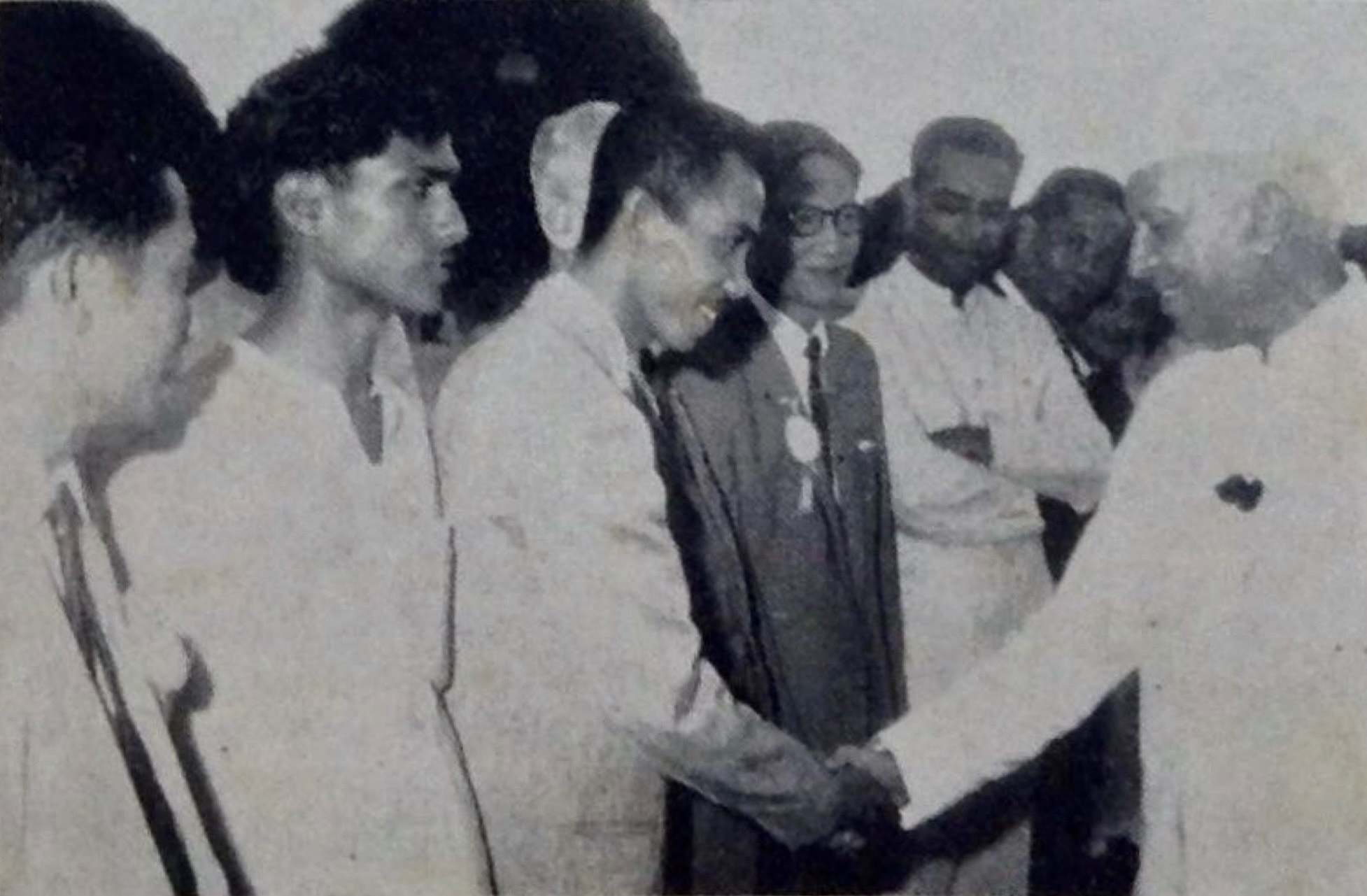
In that same month, George Douglas-Hamilton visited Brunei to discuss the Malaysia Plan with the Sultan but failed to secure his commitment. Feeling betrayed by Tunku Abdul Rahman, who had threatened to withdraw officers from Brunei, the Sultan turned to his traditional advisers-Marsal, Pengiran Ali, and Pengiran Muhammad Yusuf-who favored an isolationist approach. The Sultan refused to discuss the Malaysia Plan, citing constitutional and treaty restrictions. However, in late November 1961, the Sultan informed the Executive Council of his decision to welcome the Malaysia Plan, with no discussion or vote on the matter. It was believed that he had enlisted the support of Marsal, Pengiran Ali, Pengiran Muhammad Yusuf, and Abdul Aziz Zain, whom he had appointed to advise him on the issue. Pengiran Muhammad Yusuf later attended the second Malaysian Solidarity Consultative Committee (MSCC) meeting in Kuching in mid-December 1961 as an observer, where key issues like federal representation, immigration, and economic development were discussed.
At the final MSCC meeting in Singapore on February 7, 1962, the Malaysia Plan was agreed with particular protections for Borneo areas. A memorandum, signed by all delegates including the Brunei representatives, was submitted to the Cobbold Commission, set up by the Malayan and British governments. The Brunei delegation consisted of Pengiran Muhammad Yusuf, along with Pengiran Ali, Jamil, Lim Cheng Choo, and Abdul Aziz as the advisor. In March, while Pengiran Ali and Pengiran Muhammad Yusuf openly supported the Malaysia Plan and signed the MSCC's memorandum, Abdul Aziz informed Dennis White that Dato Marsal and Ibrahim Mohammad Jahfar were wavering in their support for the plan. Pengiran Muhammad Yusuf was involved in the Brunei government's discussions around the Malaysia proposal in April and played a key role in resolving tensions within the government, particularly between Marsal and Pengiran Ali, by mediating their rift. He was part of the group supporting Malaysia and helped influence others towards approval of the proposal.
Pengiran Muhammad Yusuf addressed public concerns on Radio Brunei in July 1962, refuting rumors that the Bruneian administration and the Sultan's position would be abolished if Brunei joined Malaysia. He warned that a small group was inciting opposition against the Sultan and spreading false information. On July 28, representing the government, he responded to concerns in the Borneo Bulletin and the Legislative Council about a doctor shortage, denying the issue and stating that Brunei had 12 doctors, with an average of one per 7,000 people. In the same broadcast, he again warned of efforts to turn the public against the Sultan, a message that appeared to have palace approval despite the police and Special Branch being unaware of it. Privately, he suggested Indonesia was behind the propaganda. His warnings were unusual, as the Brunei government typically avoided such direct communications, and they coincided with a rise in gun thefts. While there was no confirmed link to the North Kalimantan National Army (TNKU), the Borneo Bulletin noted the unusual nature of these crimes, adding to suspicions that they were linked to TNKU's preparations for the revolt.
On September 25, 1962, a Brunei delegation led by Marsal, including Pengiran Muhammad Yusuf, Pengiran Ali, Jamil, Pengiran Mohammad, and legal advisers Neil Lawson and Abdul Aziz, traveled to Kuala Lumpur for exploratory talks with the Malayan government. Their proposals included full self-government, federal responsibility for external affairs and defence, a federal guarantee of the Sultan's status and Brunei's constitution, a federal citizenship model with state-controlled immigration, representation in the Malayan government, and a financial contribution. However, they found Malaya's terms "unacceptable." By December, Acting High Commissioner W. J. Parks noted that the Brunei government, particularly Pengiran Muhammad Yusuf, may have been aware of the TNKU activities. In July, he had warned in a radio broadcast about a small group inciting unrest against the Sultan, though it appeared the government had no concrete intelligence on the TNKU at the time.
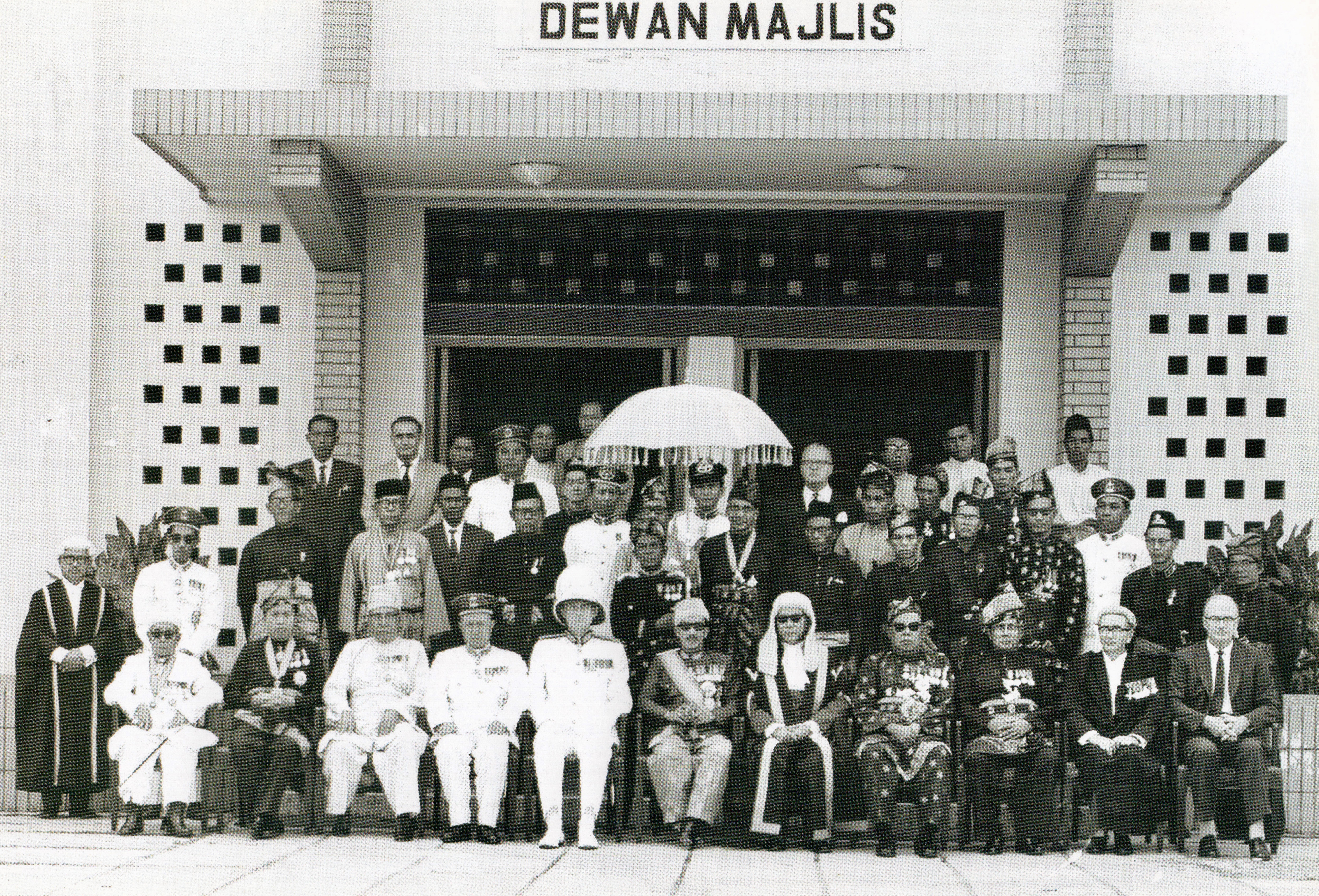
In March 1963, the Sultan sought to use detained PRB leaders to advocate for Brunei's participation in Malaysia, with White assessing their sincerity. White suggested they could help form a new political party under Pengiran Muhammad Yusuf, focusing on constitutional reform and Malaysia. He found Abdul Hapidz reliable, Tengah Hasip helpful but not a leader, and Pengiran Metussin supportive of independence first, recommending parole for the detainees to assist in the campaign. However, White's efforts to create a new political party involving PRB moderates and Pengiran Muhammad Yusuf ultimately failed. The main obstacle was the Sultan's reluctance to allow political activity outside his control, especially after the rebellion. This mistrust extended to the exclusion of political party representatives from Brunei's negotiations in Kuala Lumpur over Malaysia. In December 1963, his tenure as deputy state secretary was completed.
4.2. Deputy and State Secretary
Pengiran Muhammad Yusuf was confirmed as Brunei's State Secretary on January 18, 1964, making him the country's first native Brunei Malay to occupy the role since Ibrahim. On April 19, 1965, he officiated the opening of the Tutong District Council meeting, advising its members to exercise their powers within legal and constitutional boundaries while emphasizing political progress and stability as key to Brunei's future. Due to health concerns, Chief Minister Marsal took leave on October 1, and Pengiran Muhammad Yusuf was appointed as acting chief minister for a period of time.
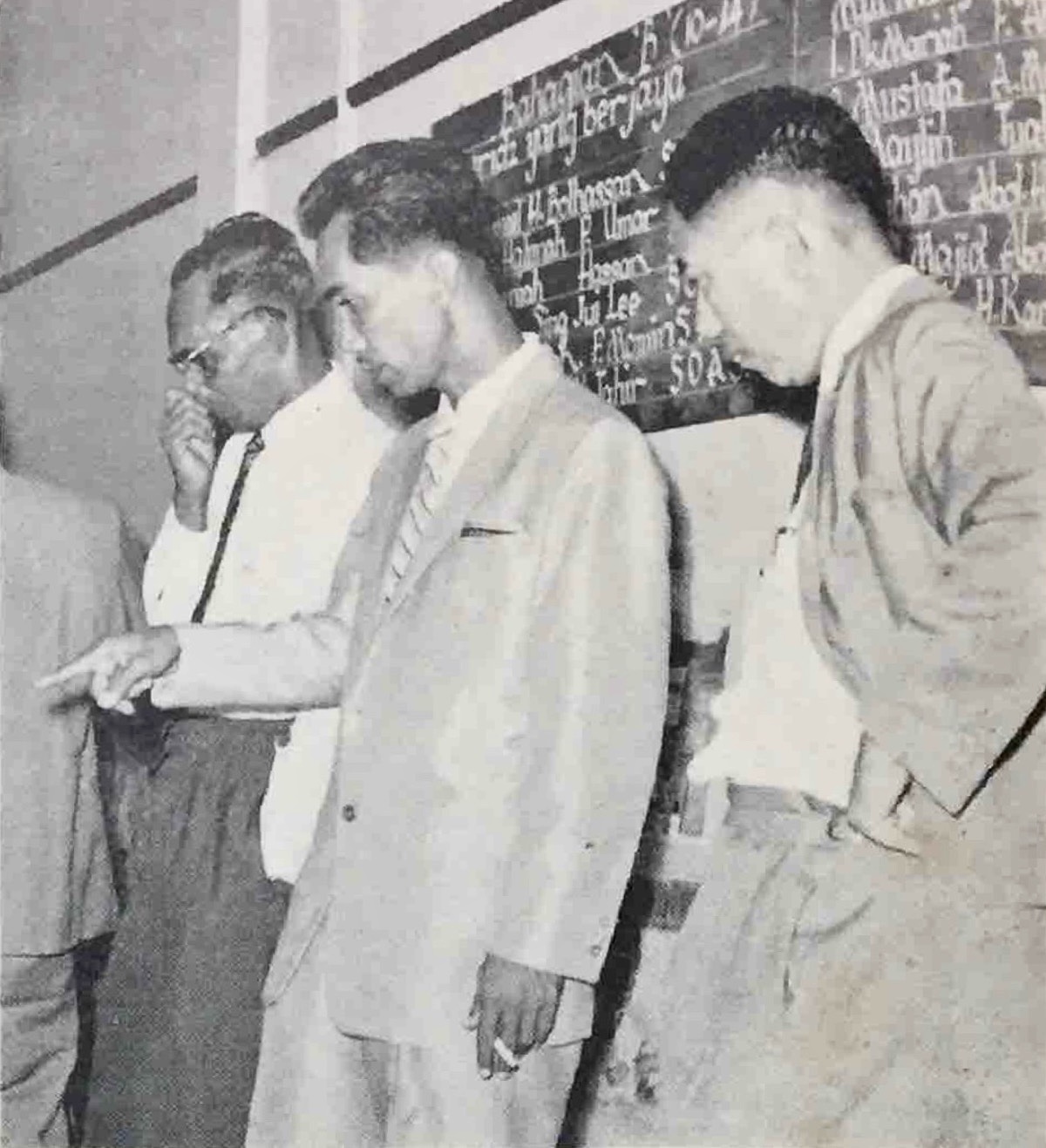
In 1966, he was involved in Brunei's efforts to claim Limbang, with the Brunei government sending letters to the British government and Malaysia regarding the issue. The British acknowledged the claim and informed Pengiran Muhammad Yusuf that Malaysia was considering the matter, but there was no follow-up. That same year, he and Pengiran Anak Mohamed Alam represented the Sultan of Brunei at the coronation of Yang di-Pertuan Agong, Tuanku Ismail Nasiruddin Shah, in Kuala Lumpur on April 10. In December, he completed his short tenure as state secretary. On March 27, 1967, he officiated the opening of the Madrasah Building of the Religious Affairs Department in Brunei Town.
4.3. Chief Minister of Brunei
On June 1, 1967, with the incumbent granted another long leave by the Sultan, which lasted until his retirement, Pengiran Muhammad Yusuf once again served as acting chief minister, while Taib Besar became acting state secretary. In July, he expressed his happiness at the progress of the three Borneo regions, highlighting the challenges and changes faced over 13 years. While Sarawak and Sabah joined Malaysia, Brunei chose to remain independent. He also urged citizens to develop rural land for agriculture to boost food production and improve livelihoods, emphasizing its importance during the inauguration of a new rural road connecting Kampong Mulaut, Kampong Tanjong Nangka, and Kampong Bebatik on September 16.
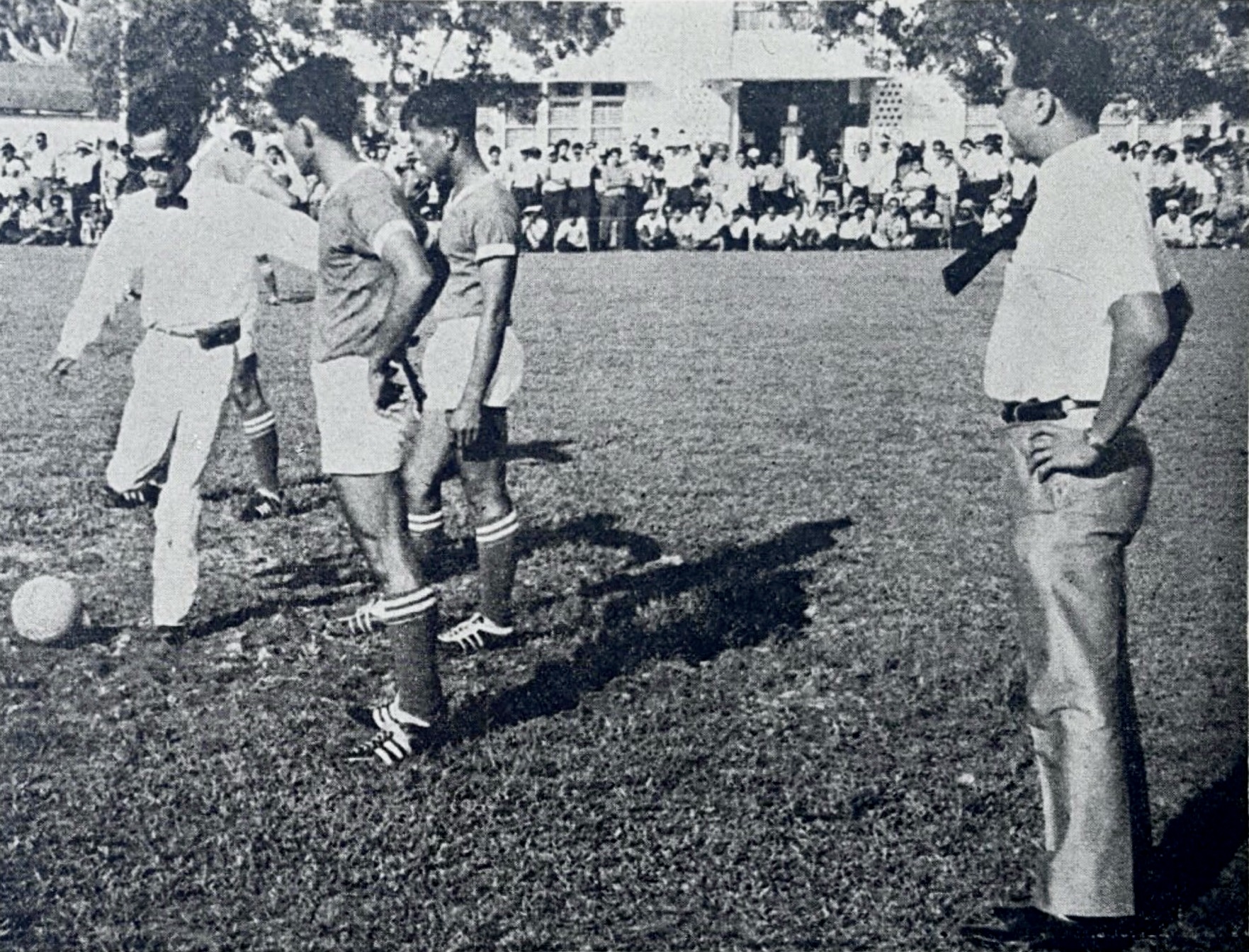
At Sultan Hassanal Bolkiah's proclamation ceremony on October 5, 1967, Pengiran Muhammad Yusuf delivered an emotional pledge of unwavering loyalty on behalf of government officials and the people, his voice breaking with emotion. He expressed confidence that the Sultan would follow his father's example in ruling Brunei. On December 11, 1967, he expressed regret over certain representatives' attempts to misinterpret the Sultan's speech during the opening of the Legislative Council session.
On January 8, 1968, Pengiran Muhammad Yusuf announced the date of Sultan Hassanal Bolkiah's coronation on Radio Brunei, describing it as a traditional ceremony that would bring prosperity to the nation and its people. On November 4, he was confirmed into office as chief minister following Marsal's retirement.
Pengiran Muhammad Yusuf officially announced the renaming of Brunei Town to Bandar Seri Begawan on October 4, 1970, during a ceremony attended by thousands, marking a significant milestone in Brunei's development under the leadership of the new Sultan. On October 23, 1970, he laid the foundation stone for the Tugu ChenderamataMalay in Seria, thanking Belait residents for commemorating Sultan Omar Ali Saifuddien III's contributions to Brunei's development. On July 15, 1972, Pengiran Abdul Momin was appointed as acting chief minister, temporarily taking over Pengiran Muhammad Yusuf. He completed his tenure as chief minister and retired from the government in December 1973.
4.4. Diplomatic service
After retiring from his role as Chief Minister, Pengiran Muhammad Yusuf continued to hold several prominent positions. He served as a member of the Adat Istiadat Council in 1974 and the Privy Council in February 1989. He was also a director of Brunei Press from 1989 to 2000, as well as a director of Baiduri Bank and Baiduri Security from 1994 to June 2000. In 1992, he was appointed to the committee responsible for reviewing and proposing amendments to Brunei's constitution.
His brief diplomatic career began with his appointment as Brunei's High Commissioner to Malaysia on November 17, 1995, a position he held until 2001. Following this, he served as Ambassador to Japan from September 2001 to September 2002.
4.5. Legislative Council membership
Pengiran Muhammad Yusuf was appointed to the Legislative Council on September 6, 2004. On March 14, 2011, he emphasized the importance of careful judgment in decision-making and praised his fellow Legislative Council members for their wisdom. The speaker, Isa Ibrahim, recognized him as the "father of the house" and a living record of Brunei's history. On March 26, 2013, he raised concerns about the empowerment of Brunei's youth, leading to discussions on various government initiatives aimed at fostering youth development. He continued to serve in this position until his passing in 2016.
5. Literary career
Pengiran Muhammad Yusuf made significant contributions to Bruneian literature under his primary pen name Yura Halim, and other pseudonyms such as Tunas Negara and Sekunar Hayat. He began writing in the 1930s, producing works across various genres including poetry, short stories, and essays.
5.1. Themes and contributions
He is particularly recognized for publishing Mahkota BerdarahMalay (Bloody Crown) in 1951, which is considered a foundational work that marked the beginning of modern fiction in Brunei. This work contributed significantly to the development of the country's literary scene, which is deeply rooted in Malay tradition, alongside classical and oral texts like Syair Awang SemaunMalay and Silsilah Raja-Raja BerunaiMalay. His collection Sekayu Tiga BangsiMalay (1965) was the first published collection of Brunei poetry and is also considered the first Brunei novel.
A notable contribution to Brunei's cultural heritage is his authorship of the lyrics for the national anthem, "Allah Peliharakan Sultan" (God Bless the Sultan), which he wrote in 1947 for the Barisan Pemuda (BARIP) and which was officially adopted as the national anthem in 1951.
5.2. Selected works
Pengiran Muhammad Yusuf authored numerous books, with many of his selected works playing a key role in shaping Brunei's literary landscape. His notable works include:
- Adat istiadat diraja Brunei Darussalam (1975)
- Antologi Sajak bersama Puisi Hidayat IIMalay (1976)
- Antologi Sajak bersama PakatanMalay (1976)
- Antologi Puisi bersama Hari DepanMalay (1980)
- Antologi Puisi bersama Bunga Rampai Sastera Melayu BruneiMalay (1984)
- Mahkota Berdarah (1987)
- Adat Mengulum Bahasa (1993)
- Antologi Sastera ASEAN, Puisi Moden Brunei DarussalamMalay (1994)
- Ririsej Brunei Darussalam (2002)
- Barat-Timur dan Bom Atom (2014)
- Mahkota Yang Berdarah (2017)
6. Titles, styles, and honours
Pengiran Muhammad Yusuf received numerous titles, styles, and honours throughout his career, recognizing his extensive service to the nation and his achievements in public life and literature.
6.1. Titles and styles

On January 12, 1968, Pengiran Muhammad Yusuf was honored by Sultan Hassanal Bolkiah with the cheteria title of Pengiran Jaya NegaraMalay. He was later elevated to the higher title of Pengiran Setia NegaraMalay on May 16, 1969. Each of these titles carries the style Yang Amat MuliaMalay.
6.2. Awards
He was given the following awards:
- International Academic Vancouver Honorary Doctorate (Canada, 1960)
- ASEAN Award (1987)
- SEA Write Award (1993)
- Universiti Brunei Darussalam Honorary Doctorate (1996)
- University of Southern Indiana Honorary Doctorate (United States, 2002)
- Pemimpin Belia BerjasaMalay (Meritorious Youth Leader, August 1, 2006)
- Tokoh Jasawan Ugama Negara Brunei DarussalamMalay (Religious Meritorious Figure of Brunei Darussalam, December 28, 2008)
- Sultan Haji Omar Ali Saifuddin Education Award
- Brunei Religious Meritorious Service Award
- Hiroshima University Honorary Doctorate (Japan, 2013)
6.3. Honours
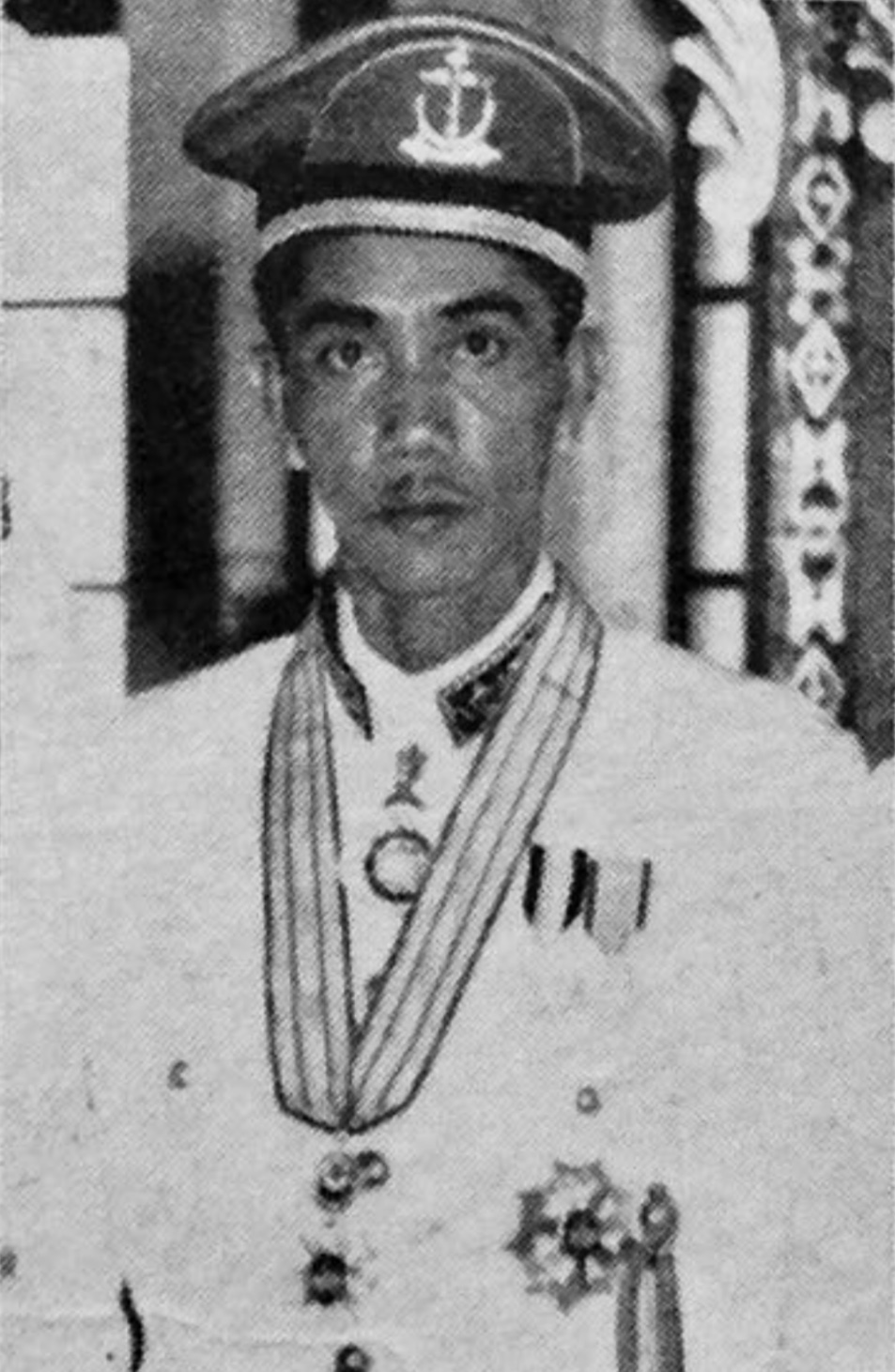
Pengiran Muhammad Yusuf was bestowed the following national and foreign honours:
50x50px Family Order of Laila Utama (DK; 1968) - Dato Laila Utama

50x50px Order of Seri Paduka Mahkota Brunei First Class (SPMB; September 23, 1963) - Dato Seri Paduka
50x50px Order of Seri Paduka Mahkota Brunei Third Class (SMB; September 23, 1958)
50x50px Order of Setia Negara Brunei Second Class (DSNB; November 24, 1960) - Dato Setia

50x50px Omar Ali Saifuddin Medal (POAS; 1962)

50x50px Sultan Hassanal Bolkiah Medal First Class (PHBS; July 15, 1970)

50x50px Meritorious Service Medal (PJK; September 23, 1959)

50x50px Long Service Medal (PKL; September 23, 1959)

50x50px Pingat Bakti Laila Ikhlas (PBLI; 2008)

50x50px Coronation Medal (1968)

50x50px Campaign Medal (1963)
50x50px Grand Cordon of the Order of the Rising Sun (Japan, 1985)
50x50px Commander of the Order of the British Empire (CBE; United Kingdom, 1969)
7. Personal life
Pengiran Muhammad Yusuf was married to Datin Hajah Salmah binti Mohammad Yussof. Together, they had eleven children: seven sons and four daughters. Their children include Pengiran Yura Halim, Pengiran Yura Kesteria, Pengiran Yura Laila, Pengiran Yura Perkasa (who is married to Pengiran Anak Hajah Mastura), Pengiran Yura Dupa Khodadat, Pengiran Yura Muhammad Abai, Pengiran Yura Alaiti (who is married to Adnan Buntar), Pengiran Yura Muliati, and Pengiran Yura Nurulhayaty.
He was also related to several notable figures. He was the uncle of Pengiran Shariffuddin, who became the first director of the Brunei Museum. Additionally, he had a half-brother named Pengiran Jaya NegaraMalay Pengiran Haji Abdul Rahman, and was the uncle of Pengiran Anak IsteriMalay Pengiran Norhayati.
8. Death and funeral
Pengiran Muhammad Yusuf died in his sleep at the age of 92, at 9:37 a.m. on April 11, 2016. He passed away at his residence, Teratak Yura, located in Kampong Sengkarai, Tutong District.
Sultan Hassanal Bolkiah paid his last respects to the former chief minister and joined the mass prayers, which were led by State Mufti Abdul Aziz Juned. Pengiran Muhammad Yusuf was laid to rest at the Sengkarai Muslim Cemetery in Tutong. Following his death, his son, Pengiran Haji Yura Halim, received a letter of condolence from Japan's Minister for Foreign Affairs, Fumio Kishida, conveyed through the Japanese embassy in Brunei.
9. Legacy and assessment
Pengiran Muhammad Yusuf left a profound and lasting impact on Brunei's political, administrative, and cultural spheres. His contributions as a civil servant, diplomat, educator, and poet shaped the nation's trajectory during critical periods of its development. As one of the "Three M's," he was instrumental in advocating for Bruneian rights and constitutional reform, challenging British colonial influence. His diplomatic roles strengthened Brunei's international relations, particularly with Malaysia and Japan.
Culturally, his legacy is cemented by his literary works, especially Mahkota BerdarahMalay, which pioneered modern Bruneian fiction, and his authorship of the national anthem, "Allah Peliharakan Sultan". His unique experience as a `hibakusha` and his subsequent advocacy for peace and the peaceful use of atomic energy also highlight his global perspective.
In recognition of his distinguished service and enduring contributions, several places and institutions have been named in his honour:
- Pengiran Setia Negara Pengiran Mohd Yusof Primary School, a school located in Seria.
- Dewan Pengiran Setia Negara, a hall situated at the Information Department headquarters in Berakas.
- Jalan Setia Negara, a road connecting Kuala Belait and Pandan.




